- Home
- News Releases
- Back Issues
- April FY2023
- “G7 Digital and Tech Ministers’ Meeting in Takasaki, Gunma” Held
“G7 Digital and Tech Ministers’ Meeting in Takasaki, Gunma” Held
April 30, 2023
On April 29 and 30, 2023, the Ministry of Economy, Trade and Industry (METI), the Digital Agency, and the Ministry for Internal Affairs and Communications jointly held the G7 Digital and Tech Ministers’ Meeting in Takasaki, Gunma in Takasaki City, Gunma Prefecture. The meeting is one of a series of ministerial meetings related to the G7 2023 Hiroshima Summit to be held from May 19 to 21, 2023. Participating representatives of the G7 member countries and regions, as well as the countries and international organizations invited, held discussions on a variety of issues in the digital and technological fields and adopted a Ministerial Declaration and Annexes as outcome documents.
1. Major outcomes of the discussions at the meeting
The meeting focused on six subjects: facilitation of cross-border data flows and data free flow with trust (DFFT); secure and resilient digital infrastructure; Internet governance; emerging and disruptive technologies in innovating society and economy; responsible AI and AI governance; and digital Competition. Participants held discussions on these subjects and adopted the G7 Digital and Tech Ministers’ Declaration as an outcome of the meeting.
Key points of the declaration are as follows.
(1) Facilitation of cross-border data flows and DFFT
Endorsing the establishment of the institutional arrangement for partnership (IAP) and agreement on the G7 vision for operationalizing DFFT and its priorities
(2) Secure and resilient digital infrastructure
Endorsing the formulation of the vision of the future network in the Beyond 5G/6G era and the G7 action plan for building a secure and resilient digital infrastructure
(3) Internet governance
Endorsing the G7 action plan for an open free, global, interoperable, reliable and secure internet
(4) Emerging and disruptive technologies in innovating society and economy
Ensuring the interoperability of digital infrastructures, taking measures against vulnerability of software in digital supply chains, and utilizing governance friendly to the innovation of emerging and disruptive technologies
(5) Responsible AI and AI governance
Endorsing the G7 action plan for promoting global interoperability between tools for AI governance
(6) Digital Competition
Agreeing to share challenges in promoting digital competition, such as those common to G7 members, in planning and implementing new and existing laws and regulatory tools and to convene a digital competition summit in the fall of 2023
2. Outline of the meeting
At the meeting, focusing on the subject of “facilitation of emerging and disruptive technologies in innovating society and economy, Mr. Nishimura Yasutoshi, Minister of Economy, Trade and Industry, stated that economic and social systems were facing a historical time of shift backed by the innovation brought by AI, the IoT, metaverse and other emerging and innovative technologies, and in view of this, he proposed the following four issues as points for debate that might become issues commonly seen among advanced countries, so that the whole of society will be able to receive the fruits of innovation.
(1) Ensuring interoperability and security of core technologies for digital infrastructures;
(2) Utilizing innovation friendly governance (rules) over innovation, e.g., innovative technologies (Governance Innovation);
(3) Digital technologies and green transition; and
(4) Future-oriented discussions on the metaverse, digital authentication, etc.
As an outcome of the discussions, with regard to Point (1) above, participants agreed that amid the progress of the cross-company or cross-sectoral initiatives, e.g., foundations for data collaboration, in countries and regions, they will work on securing the global interoperability of such digital infrastructures. On this occasion, METI launched "Ouranos Ecosystem", the initiatives for interoperable data infrastructures. With regard to Point (2), in terms of governance innovation, participants agreed with innovation friendly governance, also known as the “five principles of agile governance,” i.e., the rule of law, appropriate procedures, democracy, respect for human rights, and utilization of opportunities for innovation, aiming at the introduction of emerging technologies to society.
Moreover, Ms. Ota Fusae, State Minister of Economy, Trade and Industry, attended the meeting and participated in the discussions on DFFT as well as on the experiences and knowledge presented by Ukraine, India and Indonesia as invited countries.
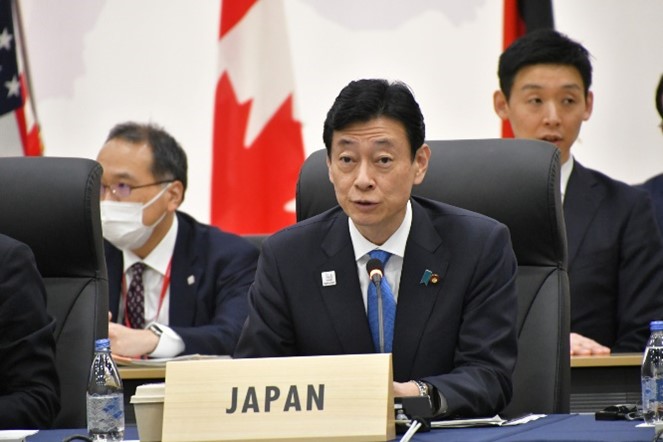
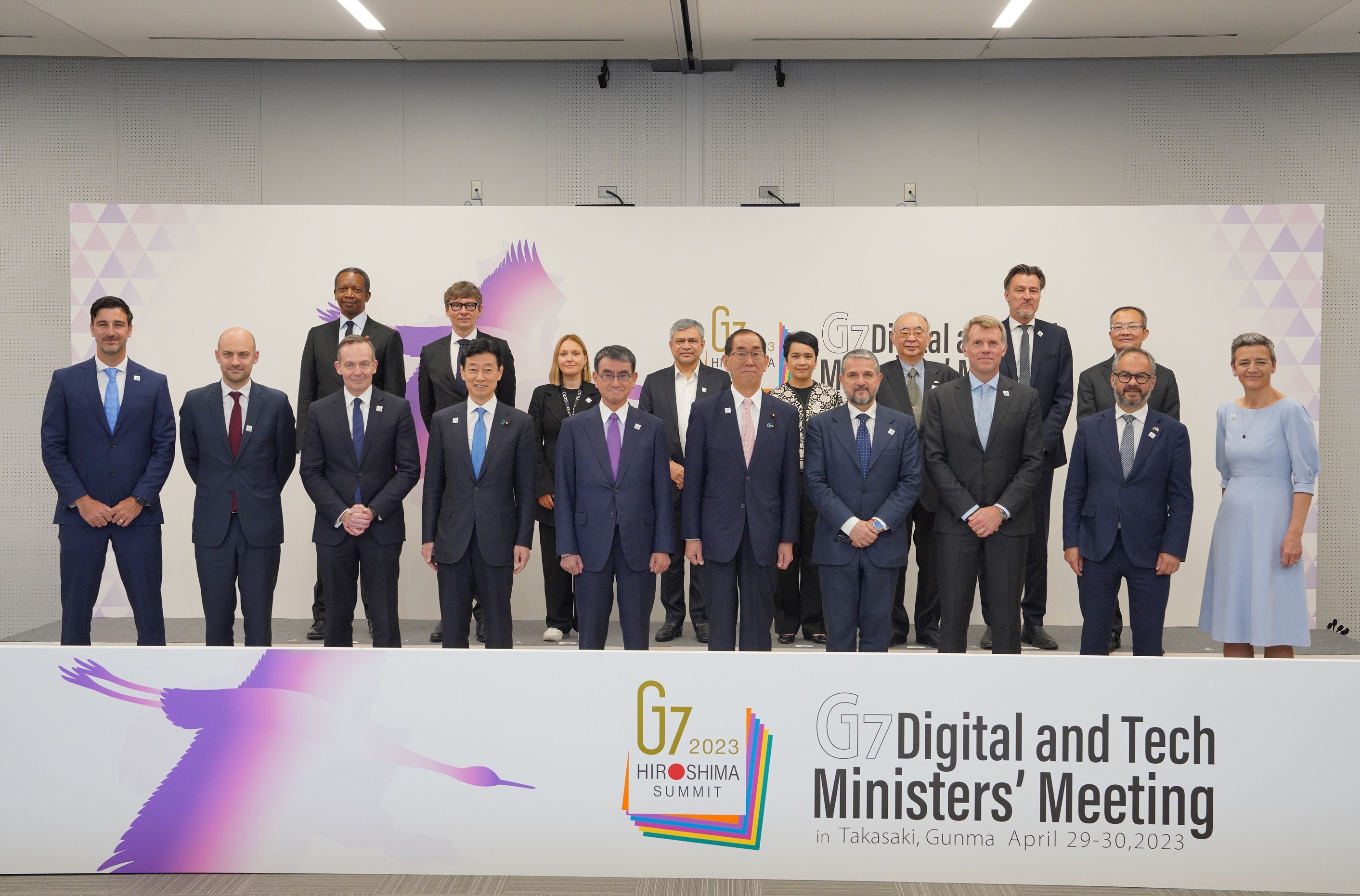
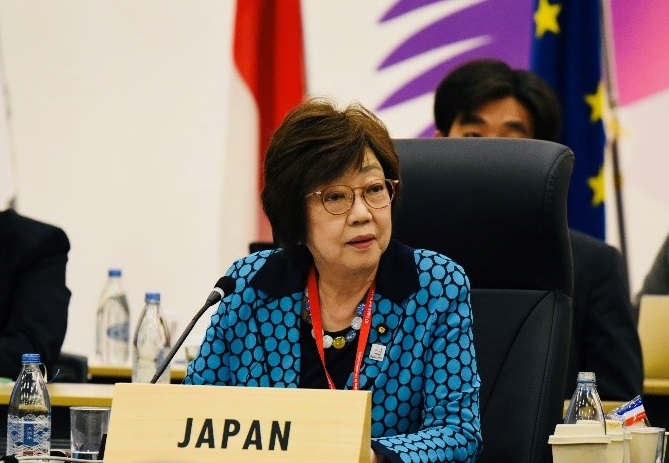
3. Overview of the DX Summit
On April 28 (Fri.), 2023, METI and the World Economic Forum (WEF) jointly held the Digital Transformation Summit (DX Summit) in Shibukawa City, Gunma Prefecture, as an official public-private event of the G7 Digital and Tech Ministers’ Meeting.
Minister Nishimura attended the DX Summit and participated in discussions. As part of the discussions, a task force made up of experts and representatives of industrial players from G7 countries provided recommendations particularly concerning ideal approaches to governance in future society. Stating the details of the recommendations, the task force stressed that approaches to addressing rapid digitization would require governance to be reformed in an agile and flexible manner in accordance with progress of technologies and changes in current situations, while taking advantage of digital technologies. At the ministerial meeting held on the following day, Minister Nishimura delivered a speech stating that Japan would hold discussions on governance in the digital era in view of the proposal.
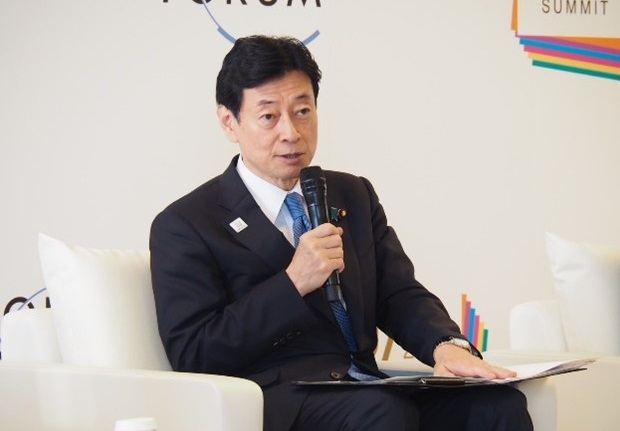
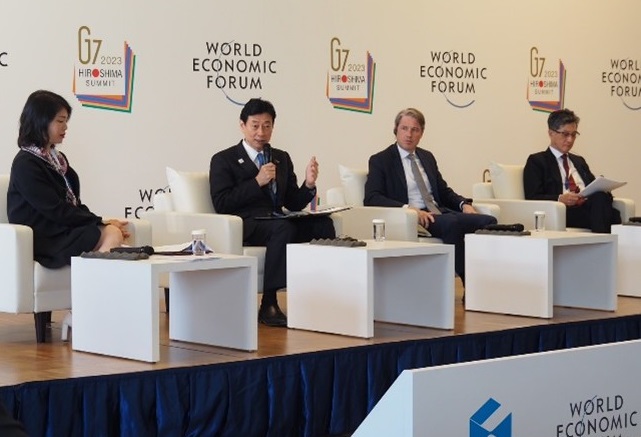
4. Outcomes of the bilateral meetings
1. H.E. Ms. Margrethe Vestager, Executive Vice-President, European Commission, EU
Japan and the EU held discussions on future directions of the facilitation of innovation and emerging technologies in society and economy and the agenda of the G7 Digital and Tech Ministers’ Meeting, and also exchanged views on Japan-EU cooperation in the fields of semiconductors and data collaboration on which the two sides have been advancing discussions, respectively.
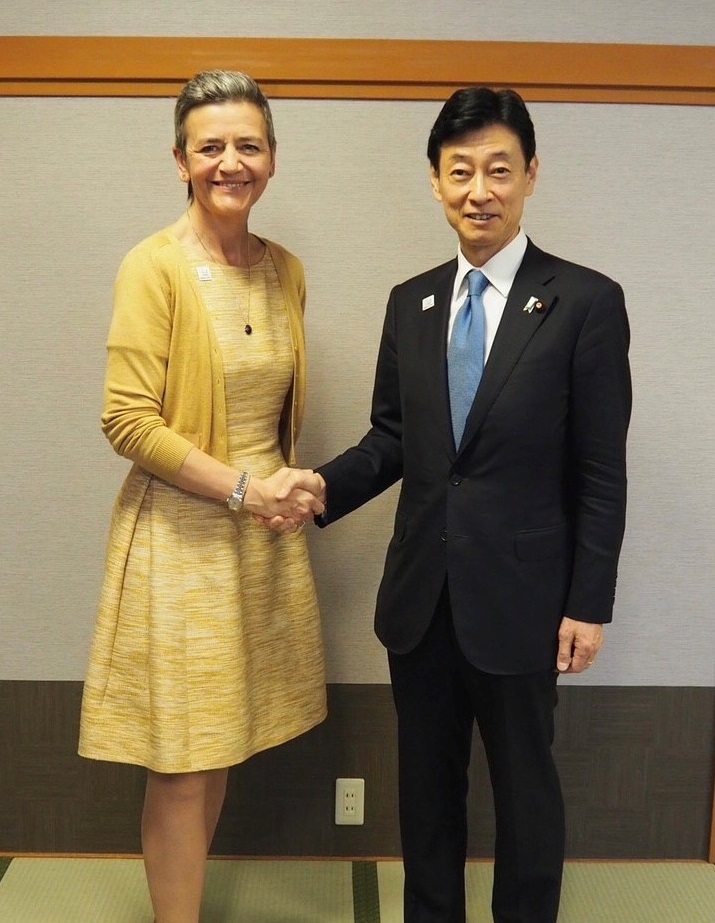
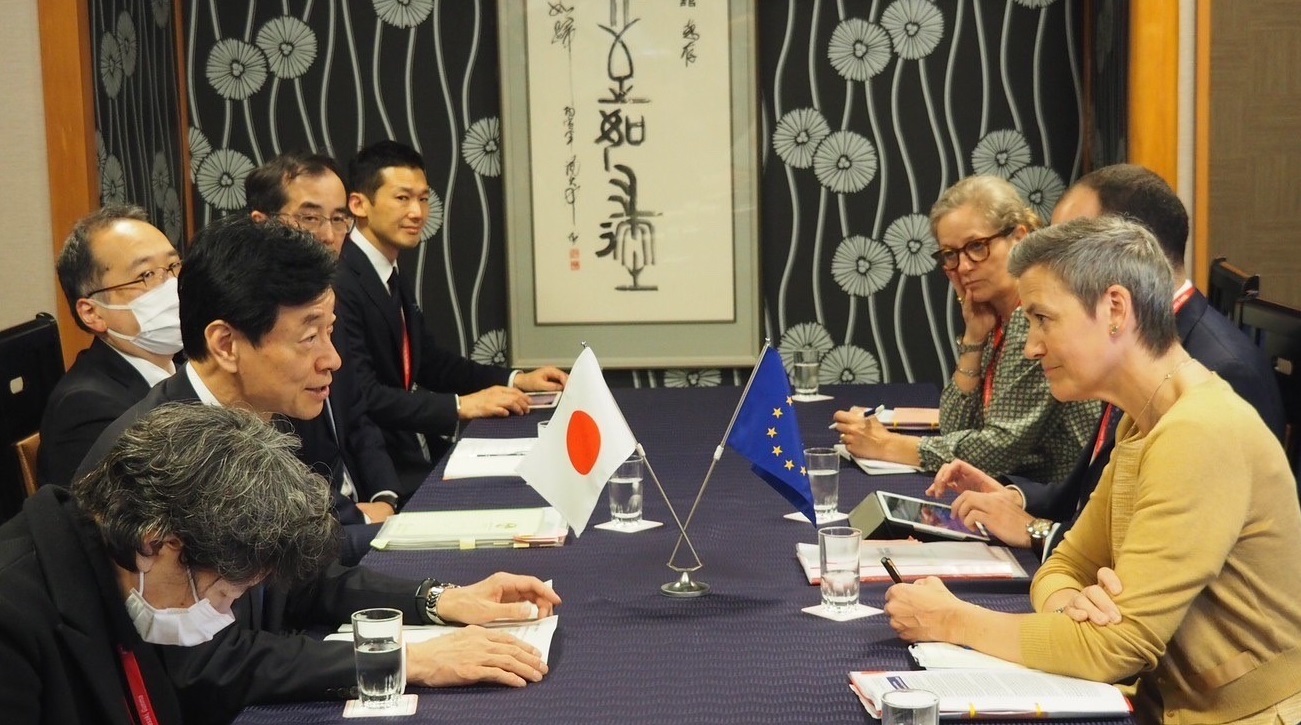
2. H.E. Dr. Jean-Noël Barrot, Minister for Digital Transition and Telecommunications, France
Japan and France held discussions on future directions of the facilitation of innovation and emerging technologies in society and the economy and the agenda of the G7 Digital and Tech Ministers’ Meeting, and also exchanged views on Japan-France collaboration among startups.
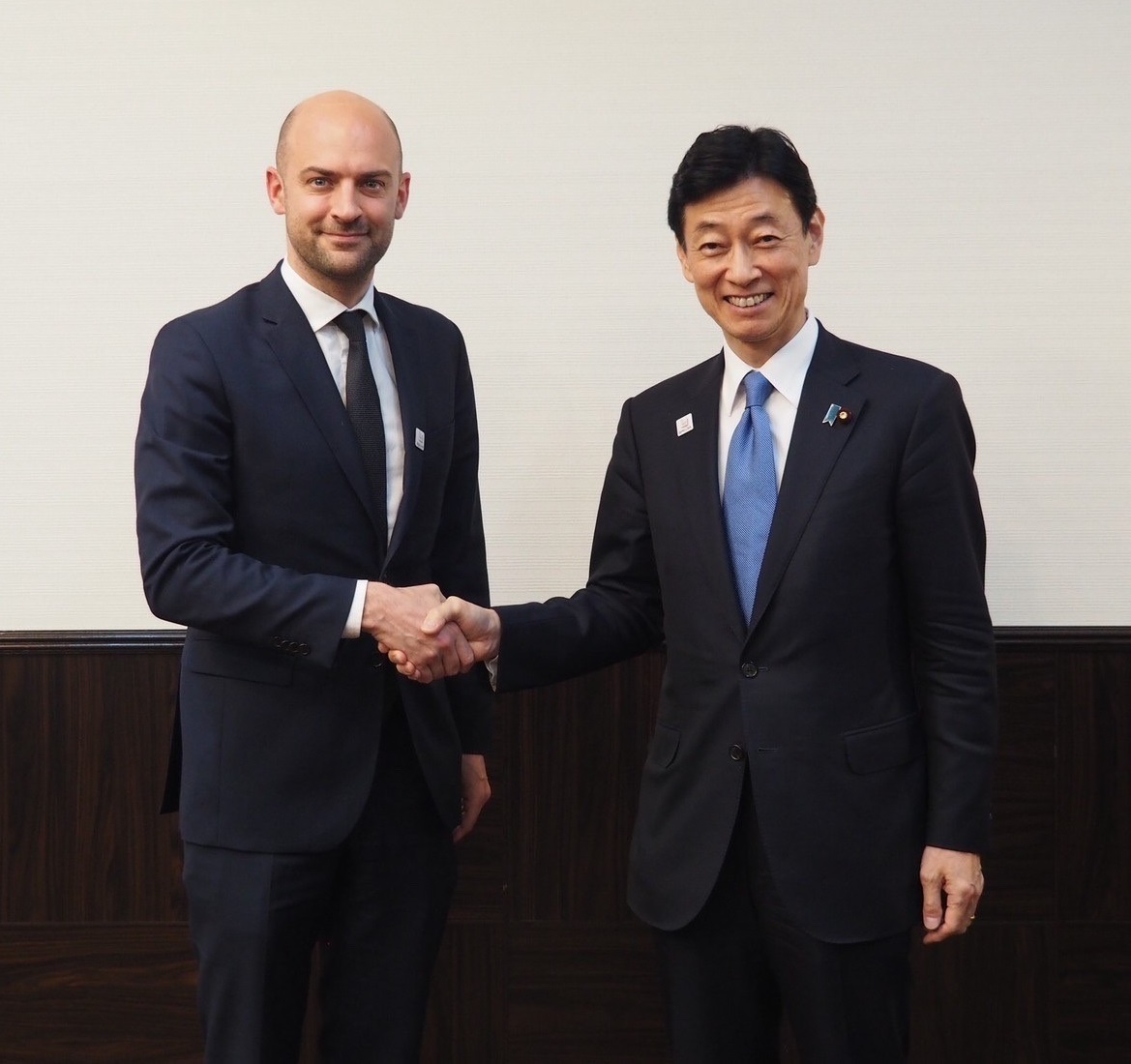
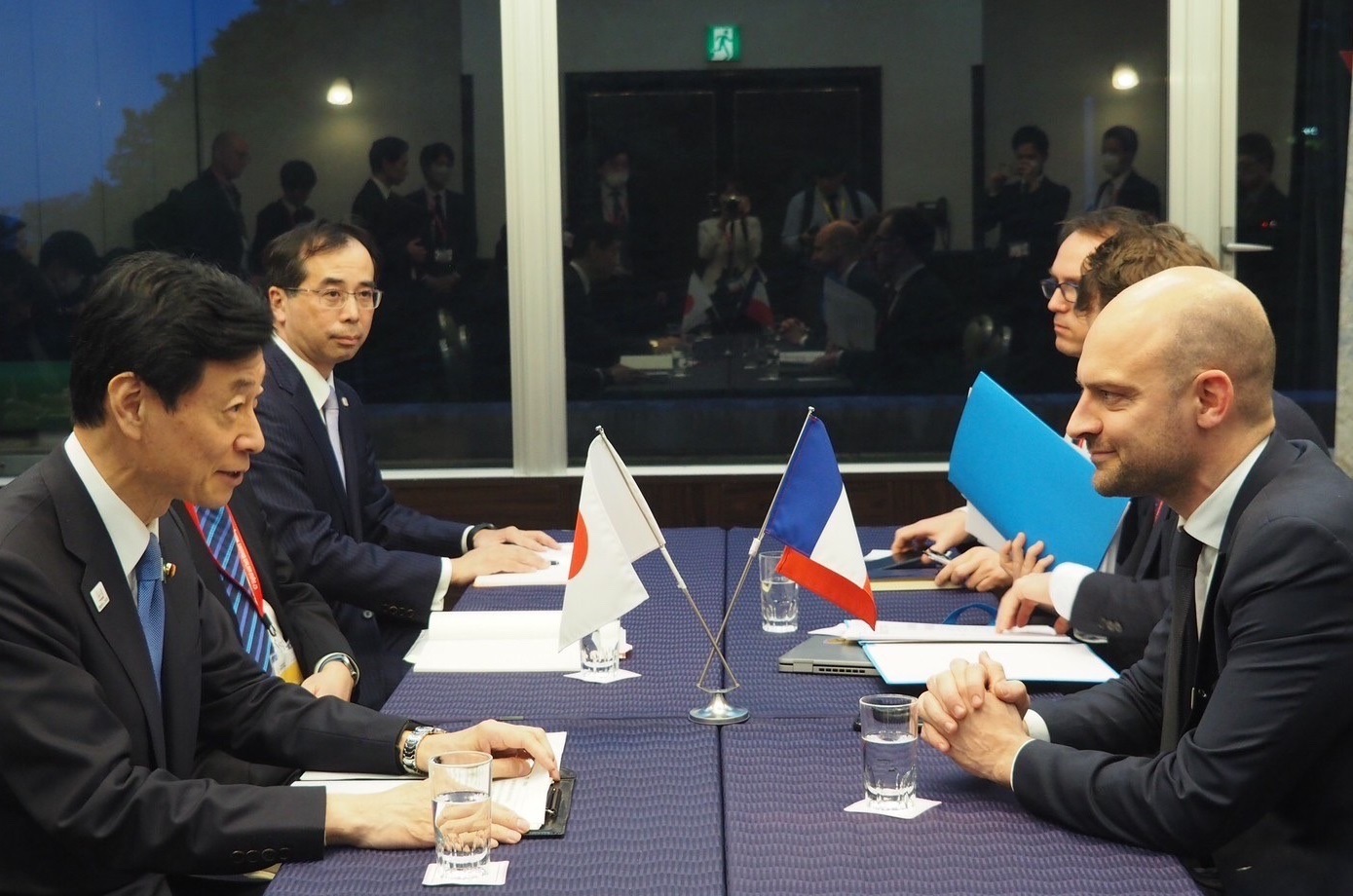
3. H.E. Dr. Volker Wissing, Minister for Digital and Transport, Germany
Japan and Germany exchanged views on e-fuels toward decarbonization in the field of automobiles and also agreed to ensure opportunities for dialogues in the future. Moreover, they held discussions on future directions of the facilitation of innovation and emerging technologies in society and the economy, the agenda of the G7 Digital and Tech Ministers’ Meeting, and Japan-Germany collaboration in the fields of 5G and Open RAN.
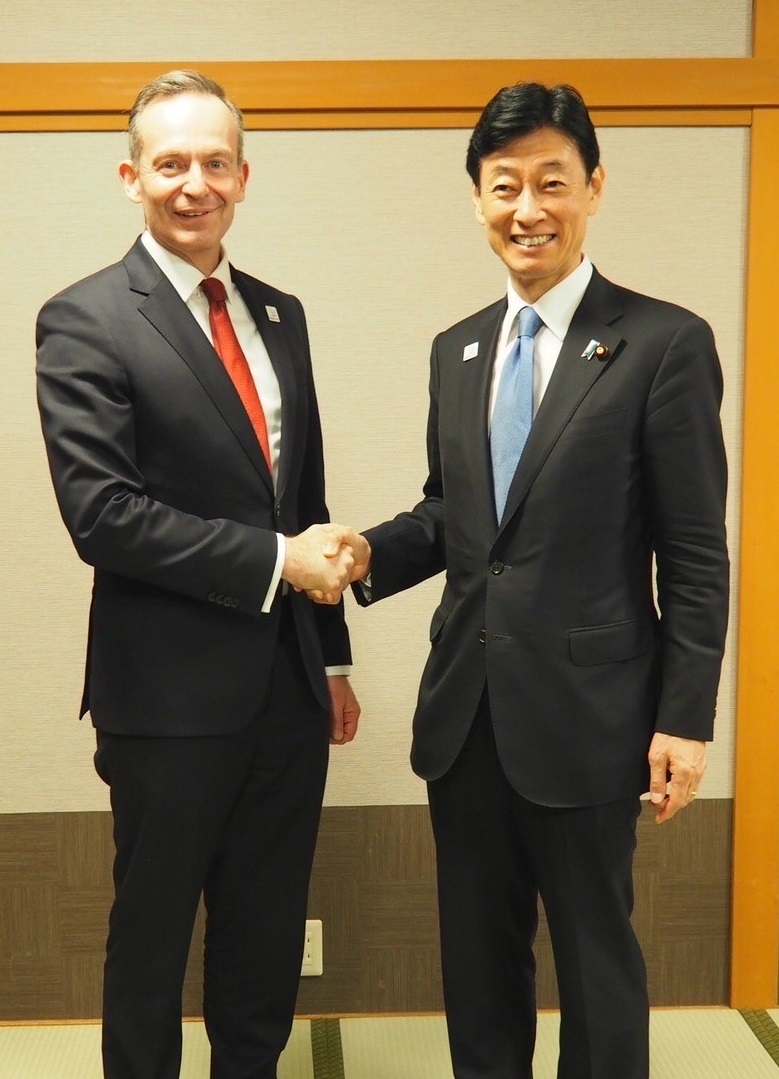
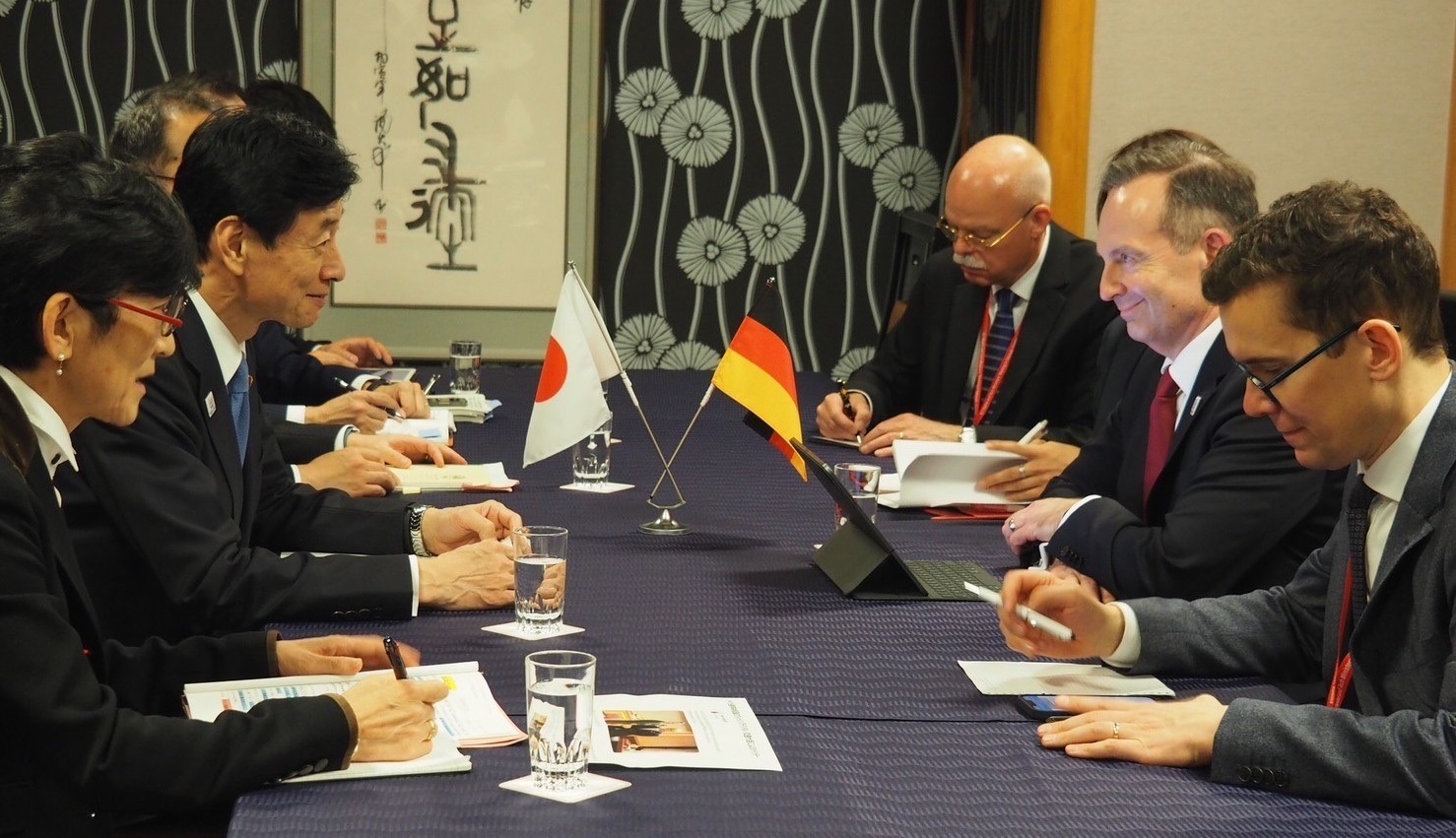
4. H.E. Mr. Valentino Valentini, Vice Minister of Enterprises and Made in Italy
Japan and Italy held discussions on future directions of the facilitation of innovation and emerging technologies in society and the economy and the agenda of the G7 Digital and Tech Ministers’ Meeting, and also exchanged views on Japan-Italy economic cooperation.
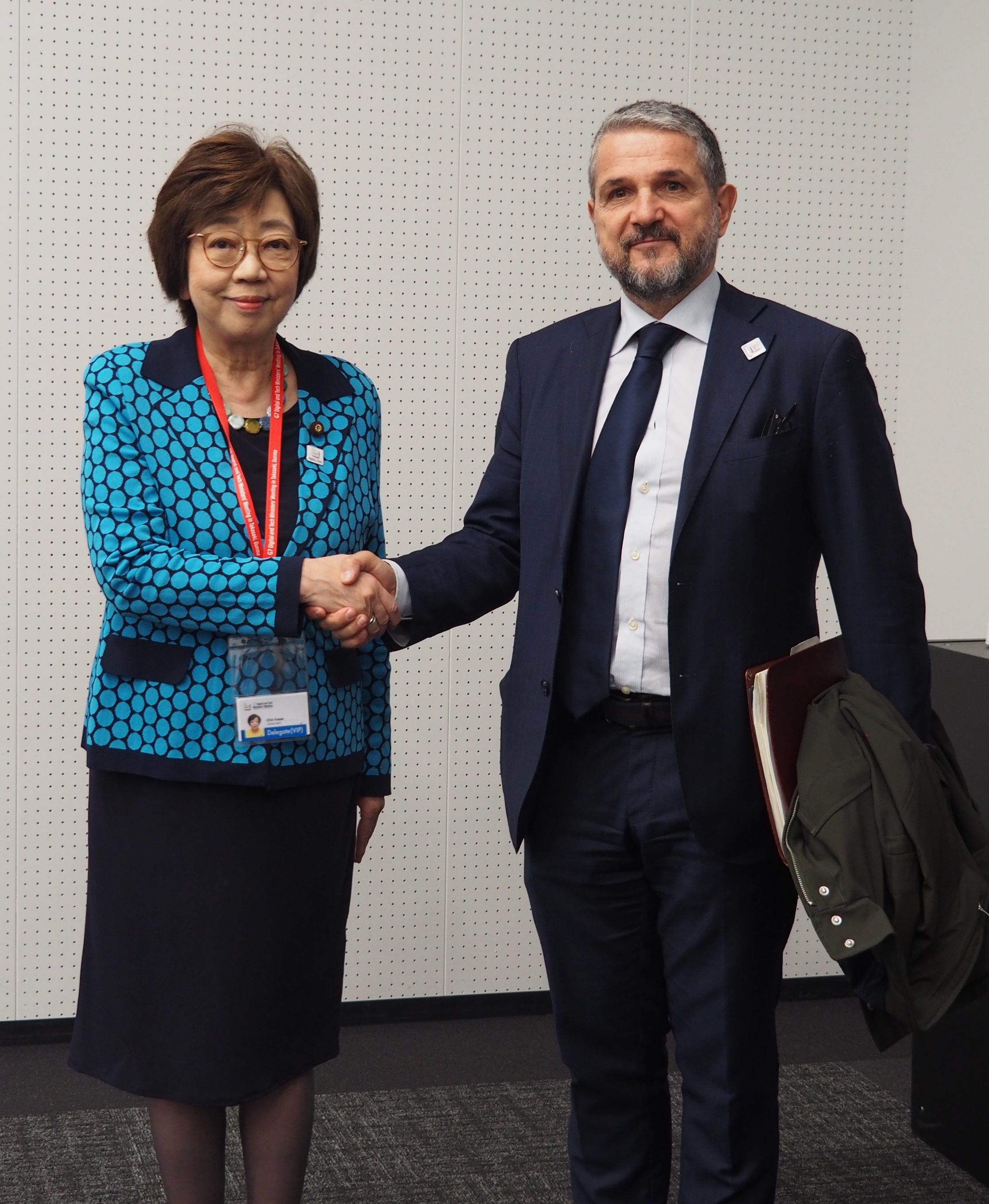
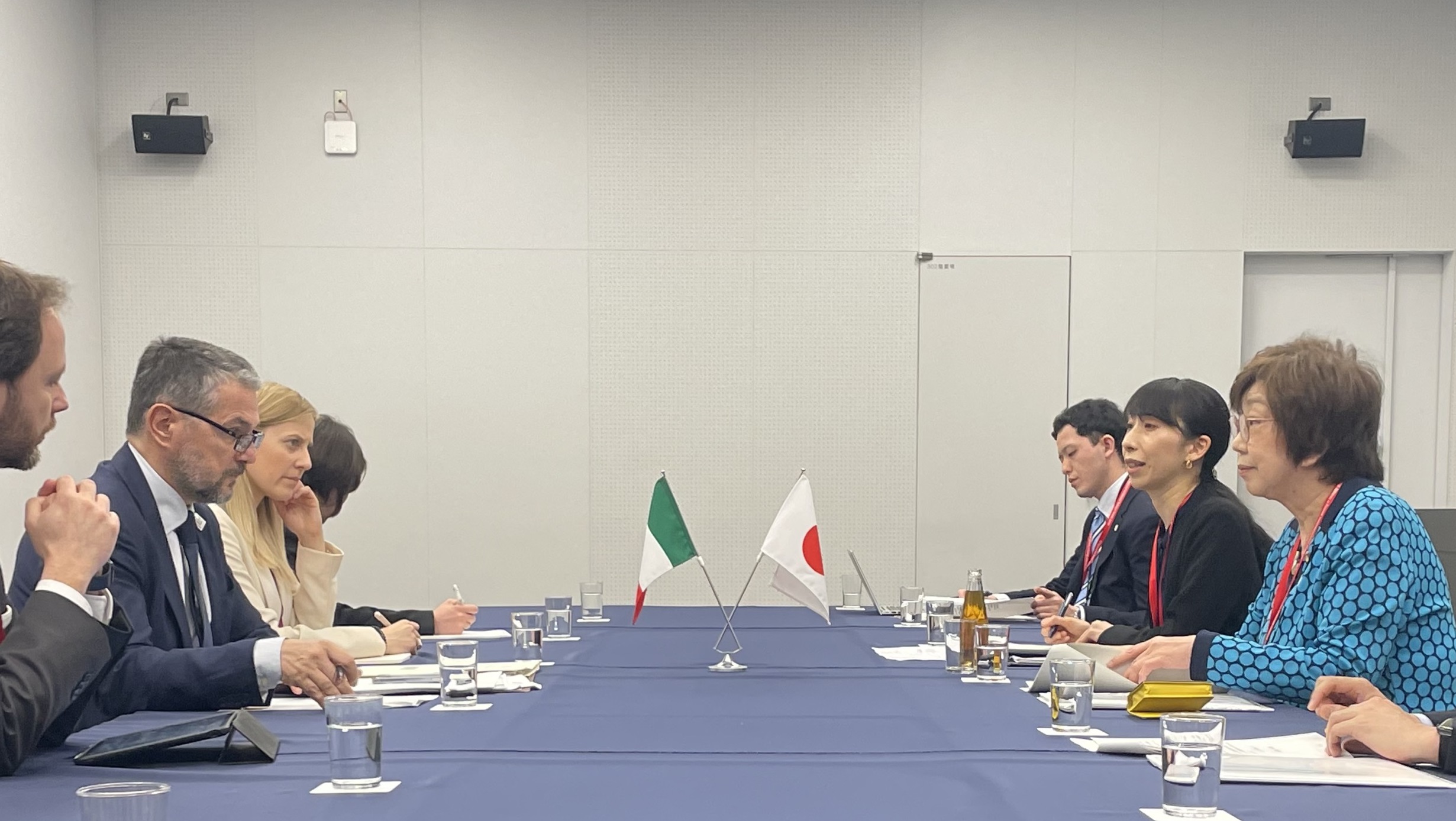
5. H.E. Mr. Nathaniel C. Fick, Ambassador at Large, Bureau of Cyberspace and Digital Policy, U.S. Department of State
Japan and the U.S. held discussions on future directions of the facilitation of innovation and emerging technologies in society and the economy and the agenda of the G7 Digital and Tech Ministers’ Meeting, and also exchanged views on further in-depth cooperation in the digital field, such as 5G and Open RAN.
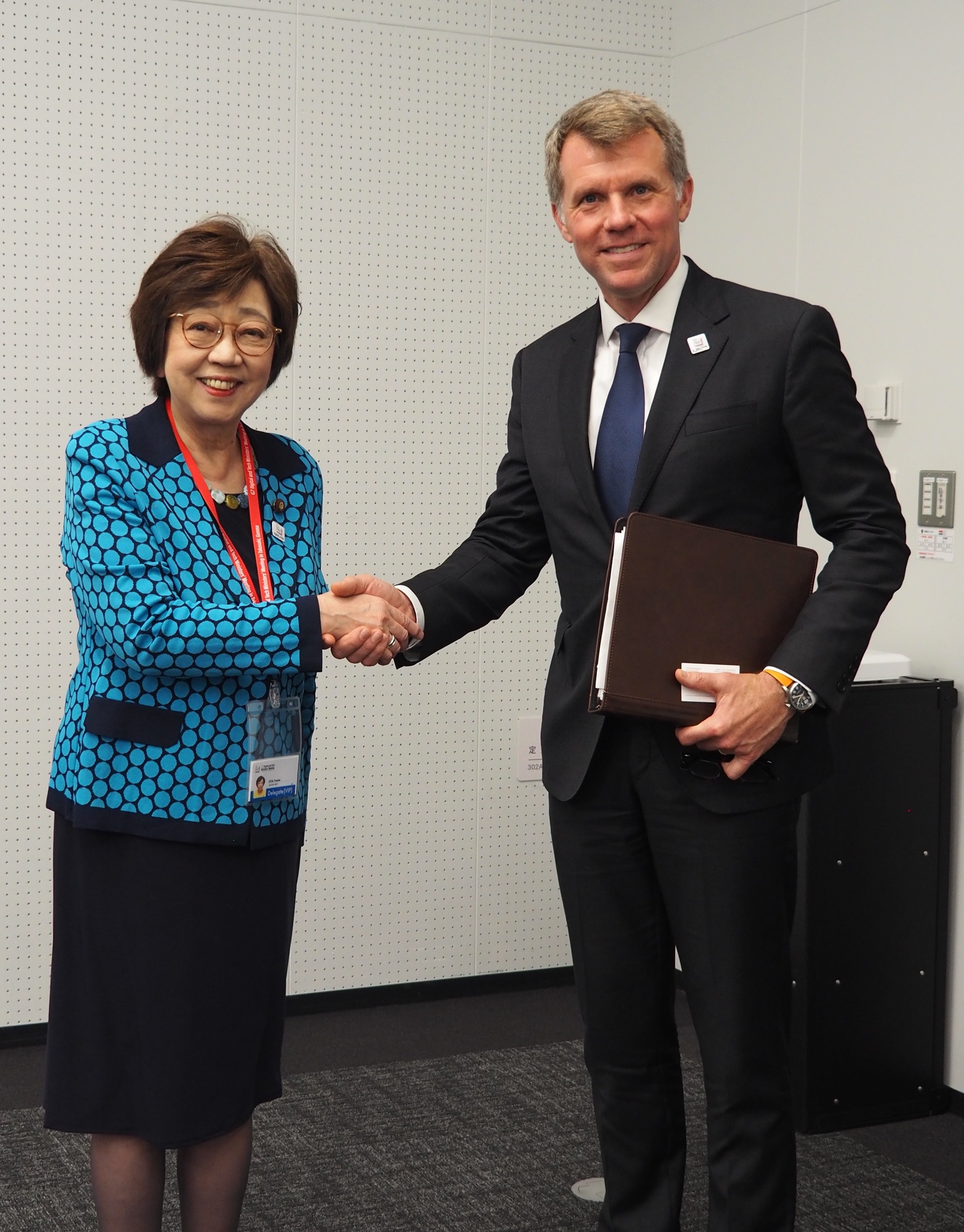
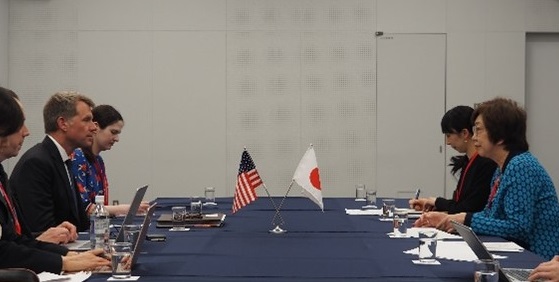
6. H.E. Mr. Ulrik Vestergaard Knudsen, Deputy Secretary General, Organisation for Economic Co-operation and Development (OECD)
Japan and the OECD exchanged views on DFFT.
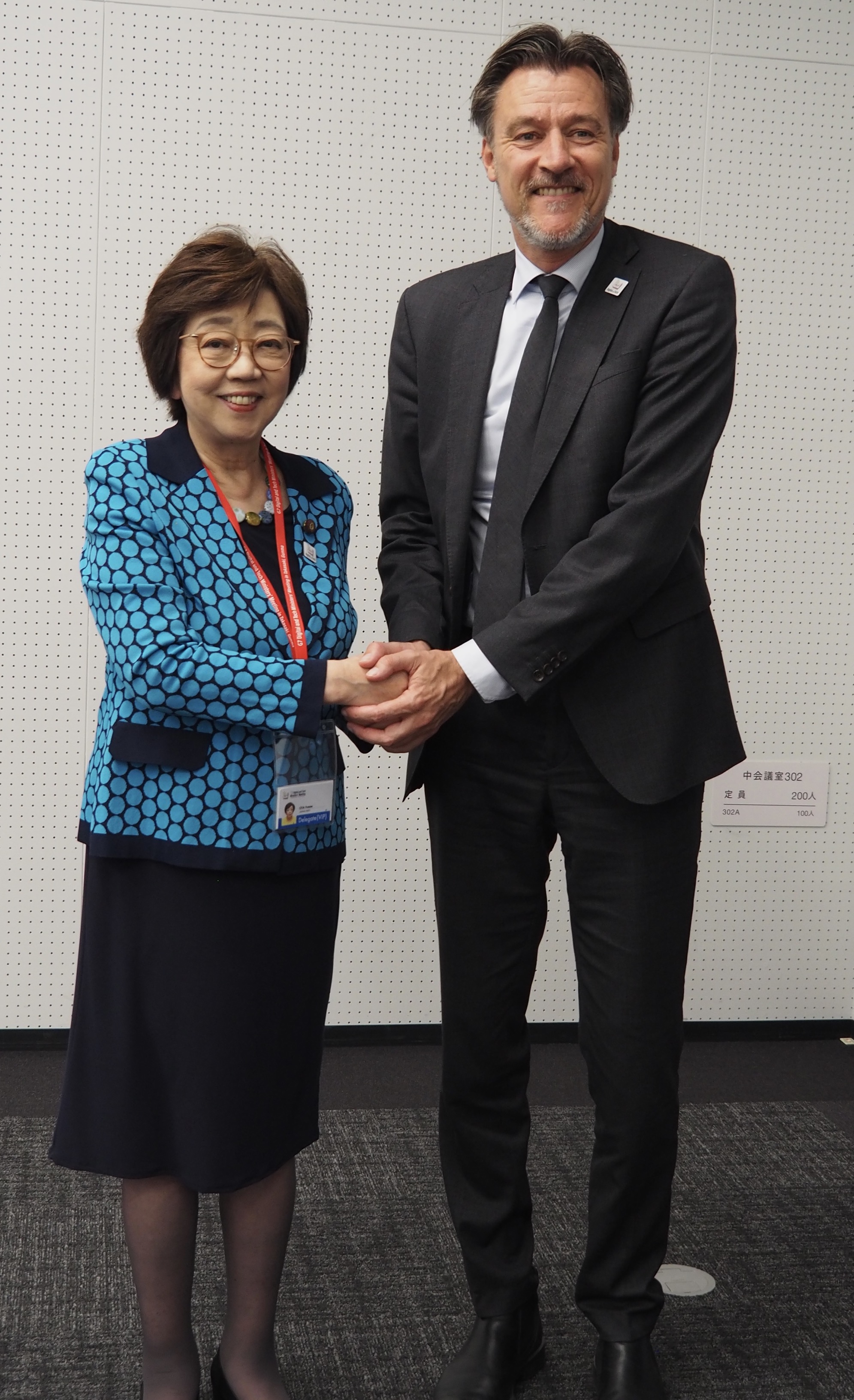
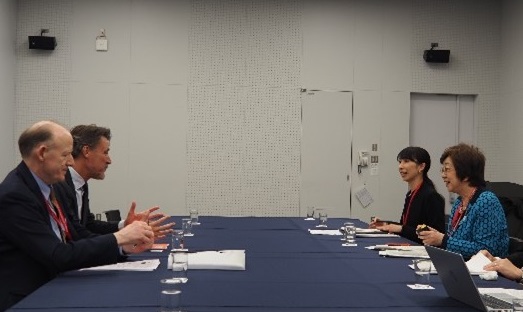
7. H.E. Mr. Paul Scully, Parliamentary Under-Secretary of State and Minister for Tech and the Digital Economy, U.K.
Japan and the U.K. held discussions on future directions of the facilitation of innovation and emerging technologies in society and the economy and the agenda of the G7 Digital and Tech Ministers’ Meeting, and also exchanged views on cooperation in industrial technologies and innovation, such as semiconductors and AI, as well as on Japan-UK digital partnership and other issues.
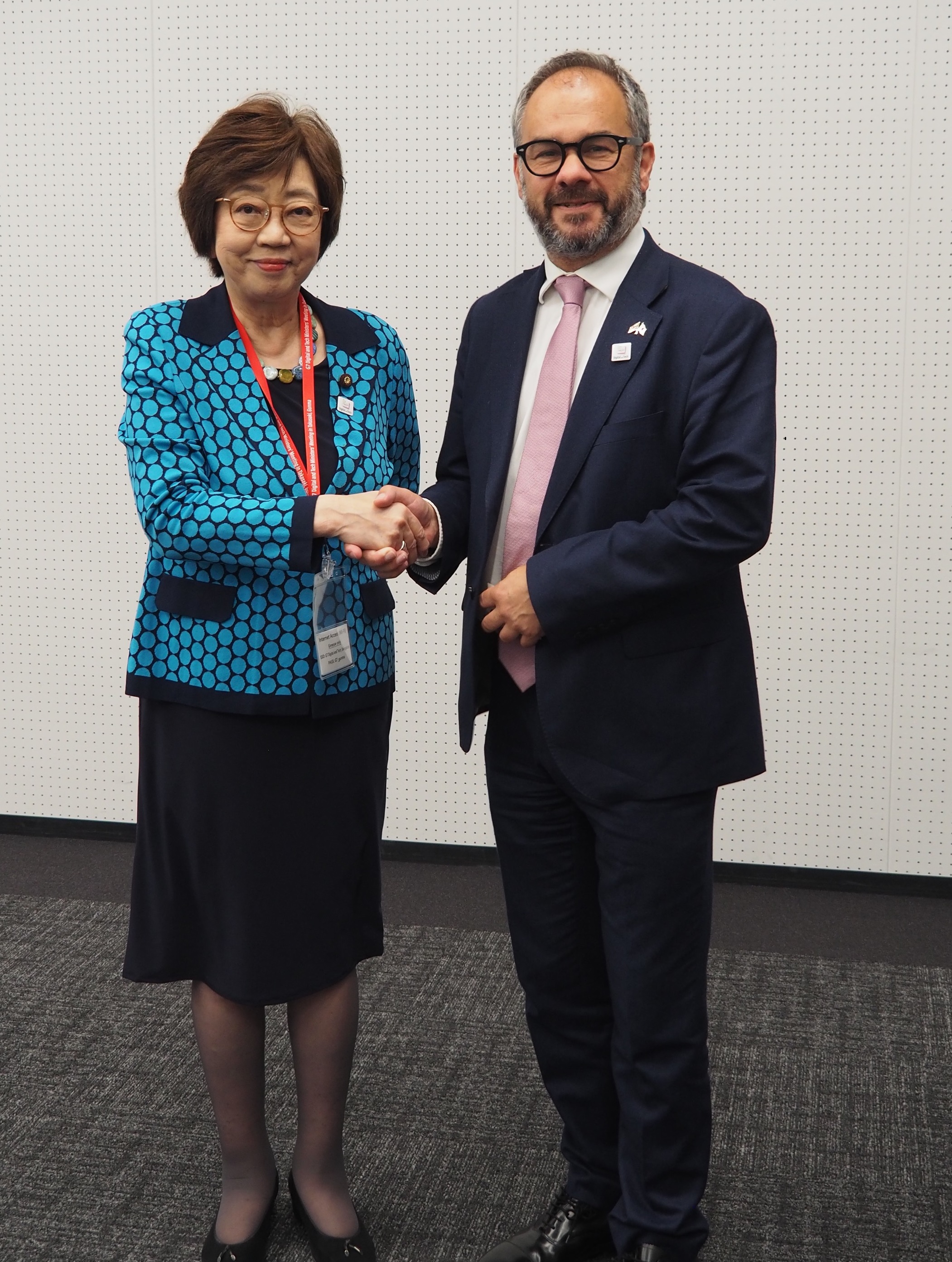
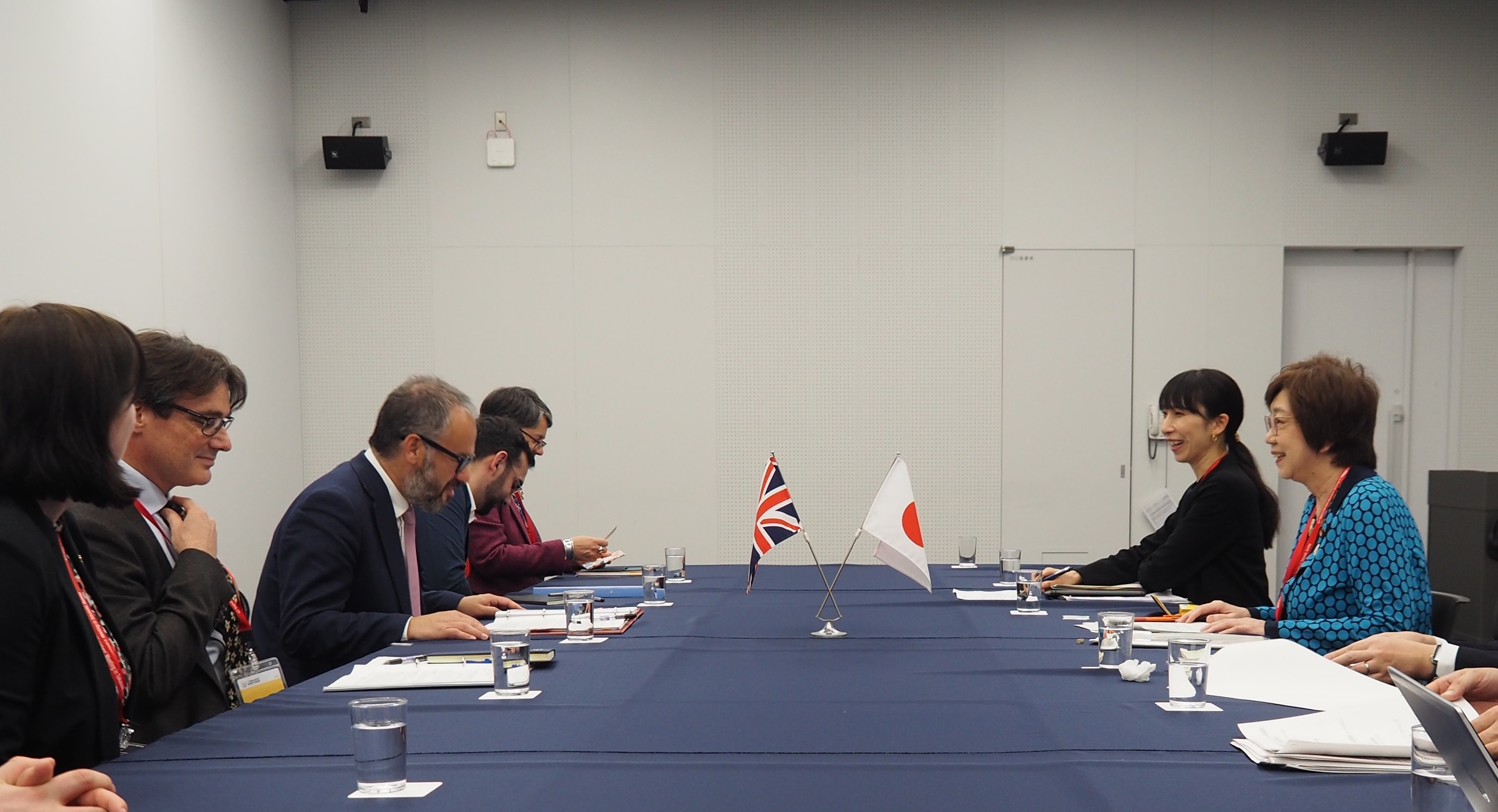
Related materials
- Ministerial Declaration of the G7 Digital and Tech Ministers’ Meeting (original text)(PDF:314KB)

- Annex 1: Annex on G7 Vision for Operationalizing DFFT and its Priorities (original text)(PDF:67KB)

- Annex 2: G7 Vision for Future Networks in the Beyond 5G/6G Era (original text)(PDF:102KB)

- Annex 3: G7 Action Plan for Building a Secure and Resilient Digital Infrastructure (original text)(PDF:76KB)

- Annex 4: G7 Action Plan for Open, Free, Global, Interoperable, Reliable, and Secure Internet (original text)(PDF:82KB)

- Annex 5: G7 Action Plan for Promoting Global Interoperability between Tools for Trustworthy AI (original text)(PDF:101KB)

Link to related information
Division in Charge
International Affairs Office, Policy Planning and Coordination Division, Commerce and Information Policy Bureau